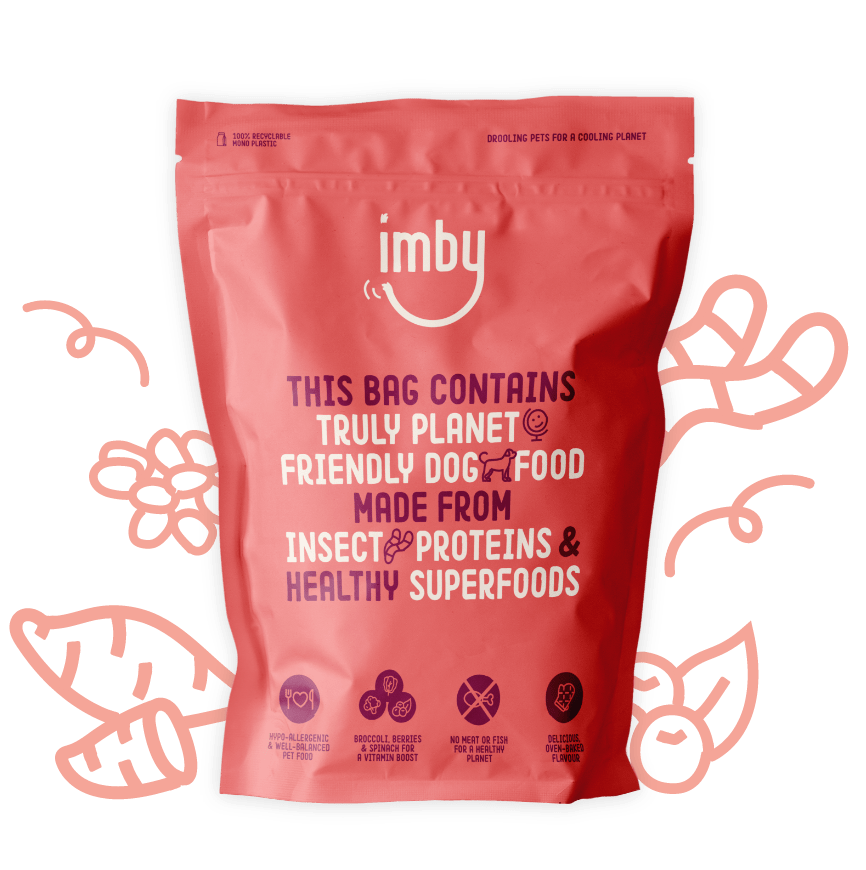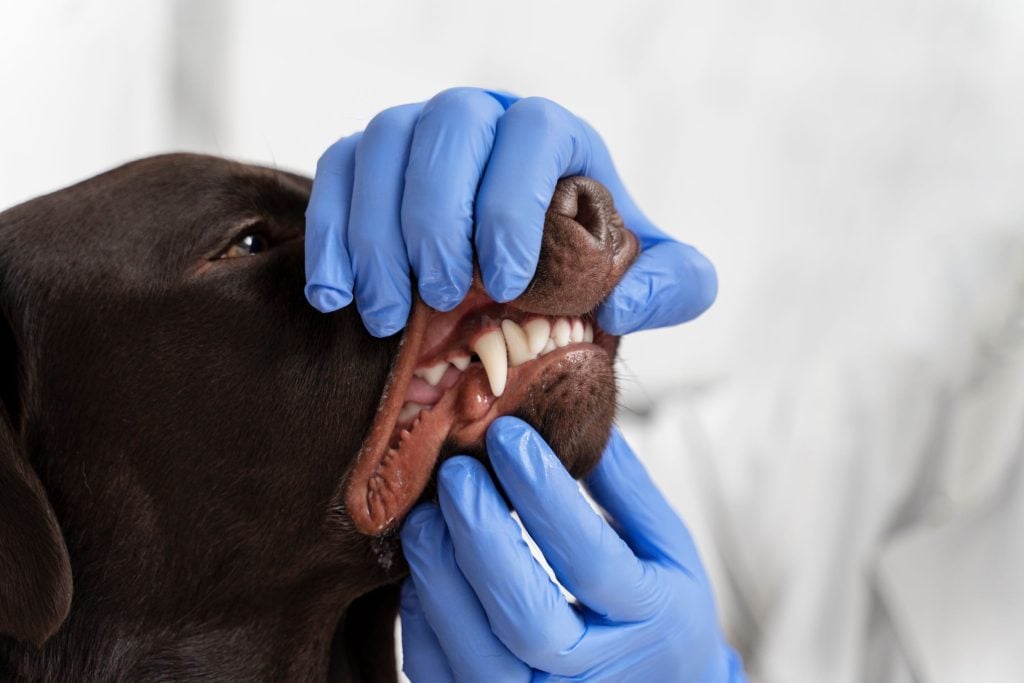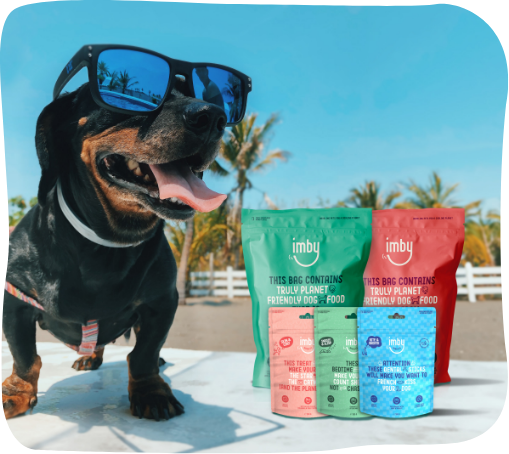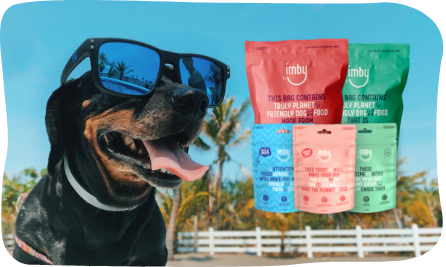Use code CHANGE20 for 20% off your first dog food order!
Use code CHANGE20 for 20% off your first dog food order!



Gluten intolerance has become a hot topic in recent years. But did you know that this condition affects dogs as well as humans?
Gluten intolerance – or gluten sensitivity as it is also called – can wreak havoc in a dog’s intestines. It is a reaction to the protein element present in grains such as wheat, rye and barley and can lead to a number of chronic signs and symptoms similar to those of celiac disease.
Although quite rare, studies show that 10% of all allergies in dogs are food allergies, including gluten intolerance. Although gluten is safe for most dogs, you should take action if you see signs of gluten sensitivity in your pet. If gluten allergy is left untreated, it can have a detrimental impact on your pup’s gut and overall health.
Celiac disease and gluten intolerance are not the same thing, although the symptoms are very similar. Severe abdominal pain, bloating and diarrhea are some of the most common symptoms of both.
Celiac disease is an autoimmune disease. In humans, the body’s immune system attacks the body’s own healthy tissue. The body’s immune system attacks substances in gluten as a threat to the body and destroys them, leaving damage to the small intestine.
This inflammation can compromise the absorption of nutrients from food into the bloodstream, leading to anemia and an increased risk of cancer and other chronic diseases.
There is debate in the scientific community about whether dogs can have celiac disease. A number of reports show that gluten intolerance exists in dogs. Non-celiac gluten sensitivity exists when no autoimmune antibodies are present.
Gluten intolerance usually occurs when a dog is between six months and three years old, but it can occur at any time. This condition is more common in breeds such as Irish Setters.
Wondering if your dog is allergic to gluten? Here are the main symptoms to watch out for:
Vomiting or stomach problems such as diarrhea, loose stools, flatulence or excessive mucus in the stool may be the first sign that your pup has a problem with gluten.
Watch for signs of dry and flaky skin, bumps and rashes. These are all classic signs of a food intolerance, although these signs of sensitive skin can also be related to things like seasonal allergies.
Before you notice a skin condition, you may see your dog scratching and itching excessively. If you see this behavior, it’s worth investigating whether gluten or something else (like fleas) is the culprit.
Red and inflamed paw pads is another sign of a gluten allergy. As a result, dogs with such an allergy may repeatedly lick or chew their paws.
A dull, lackluster coat can be a sign of gluten intolerance due to poor nutrient absorption. You may also see coat loss due to excessive scratching.
Dogs with gluten allergy have difficulty absorbing nutrients from their food. If you feed your dog the same amount of food as normal, but he loses weight rapidly, gluten may be the culprit.
Excessive consumption of gluten can lead to yeast buildup, which can cause ear infections in your dog. Watch for dark, smelly waxy residue in their ears and shaking of their head.
Any combination of the above symptoms could be a sign that your dog is allergic to gluten. If you suspect you have a gluten-intolerant dog, you can start with a gluten-free diet. If this relieves the symptoms, it is very likely that a gluten intolerance is the cause of your dog’s discomfort.
If you’re still not sure, you can do a gluten intolerance test at home with a kit or with a dog nutritionist.
Grain-free and gluten-free are two words that are often used interchangeably, but do not actually mean the same thing. To add to the confusion, people often use the term “grain intolerance” – when they do this, they usually mean gluten intolerance.
Grain-free diets contain no grains at all – that means no rice, barley or wheat. This should mean that all “grain-free” products are automatically gluten-free, but it is not a guarantee. If you are buying food for a dog with a gluten intolerance, it is worth checking the ingredients carefully.
Gluten-free foods do not contain gluten-containing grains such as wheat, barley and rye, but may still contain other grains, such as rice.
Depending on whether you are dealing with an allergy or just want to optimize your dog’s diet, a grain-free or gluten-free diet may be a good choice for your pup. Just remember that neither label guarantees good quality. As with Imby Pet Food pet food (which is both gluten-free and grain-free), look for products made from free-range proteins and healthy starch sources, such as vegetables.
Although many think they are the same thing, gluten intolerance and a wheat intolerance or allergy are actually subtly different: gluten is the protein present in wheat and other grains.
Wheat may also be known as:
Gluten intolerance means an intolerance to all of the above, plus other sources of gluten such as rye and barley.
Despite the differences in humans, both are currently treated the same in dogs. So if you’re busy scouring the Internet for information on what to do about wheat allergy in dogs, stop there. A gluten-free diet for your faithful four-legged friend is the safest and easiest way to solve all problems.
While there is no cure for gluten intolerance in dogs, the good news is that you can effectively manage the condition by eliminating gluten from their diet. While this is not always easy with permanently hungry pups around, it is important!
If a gluten intolerance is the cause of your dog’s symptoms, they should return to full health as soon as you remove the allergen from your dog’s snacks and food. Over the next few days and weeks, you will see their stools return to normal, their lost weight regain, and their smooth skin and shiny coat.
Before starting a diet, it is best to see a veterinarian for advice and support. They can physically examine your dog and possibly run blood tests to rule out other underlying diseases.
In addition to excluding gluten from your pup’s diet, your veterinarian can make other dietary suggestions. They may suggest a particular diet or ask you to supplement your dog’s food with additional nutrients and vitamins.
Once you know your dog has a gluten intolerance, it’s time to stock up on the right food.
Gluten is a common ingredient in dog food – the gluten-containing proteins are often used to glue kibble together. So be sure to check the ingredients of all food and treats your dog eats.
Thanks to the growing awareness around this condition, there are now many more pet food choices suitable for allergies. Look for high-quality products that use potatoes and other starchy vegetables instead of grains.
Nutritious gluten- and grain-free dog food, such as our kibble, is a great choice for pets with allergies. In fact, all dogs benefit from switching to a product like ours, regardless of whether they have allergies.
Grain-free diets should not cause side effects (such as loose stools) in puppies without allergies. Indeed, with no cheap grains in their diet, and thanks to the added vegetables they will eat, their gut health should flourish.





It's all to make your browsing and shopping experience at Imby, a real treat! Read more about it in our Privacy Policy.
4.8 out of 5 stars
based on 1171 reviews



"*" indicates required fields